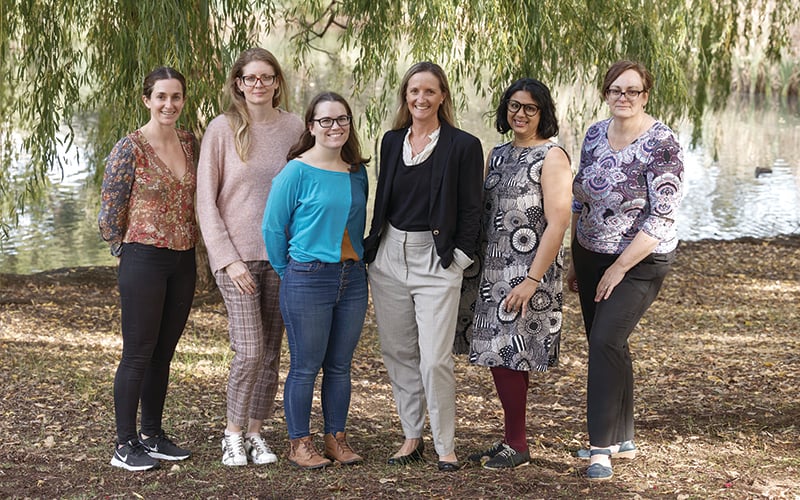Search
Research
Neighborhood Places for Preschool Children's Physical Activity: A Mixed-Methods Study Using Global Positioning System, Geographic Information Systems, and Accelerometry DataThis study adds to the current literature by using a novel device-based method to explore where preschool children are physically active outside of home and childcare settings. This study combined accelerometry with geospatial data to explore the influence of the environment on preschool children's physical activity by objectively identifying the locations where preschool children engage in moderate to vigorous physical activity (MVPA) within and outside of their neighborhood.
Research
Physical activity management for youth with type 1 diabetes: Supporting active and inactive childrenRegular physical activity and exercise are important for youth and essential components of a healthy lifestyle. For youth with type 1 diabetes, regular physical activity can promote cardiovascular fitness, bone health, insulin sensitivity, and glucose management. However, the number of youth with type 1 diabetes who regularly meet minimum physical activity guidelines is low, and many encounter barriers to regular physical activity.
Research
Structured exercise programs for higher education students experiencing mental health challenges: background, significance, and implementationThe incidence of mental illness is greatest among young adults, and those enrolled in higher education may be particularly vulnerable compared to the general young adult population. Many higher education institutions employ student support staff tasked with implementing strategies to improve student wellbeing and mental illness.

Childcare centres have flocked to take up a new evidence-based policy to help ensure young children get more of the physical activity they need to be healthy and developmentally on track.
Research
Thriving Under Threat: A Scoping Review of Human Thriving in Recurring Potentially Traumatic, Elevated Threat and High Stress Work EnvironmentsIn this scoping review, we explore the concept of human thriving in work populations that are repeatedly exposed to high stress, elevated threat, and potential trauma-professions such as first responders and front-line military personnel. The concept of thriving, defined as the joint experience of development and success, shares some similarities with other psychological concepts (e.g., resilience, posttraumatic growth, flourishing), but is distinct due to the consideration of physical wellbeing, and success (e.g., performance).
Research
Dog Ownership, Physical Activity, and Mental Health in Mid-to-Older Aged Adults: Findings From the HABITAT Cohort StudyDog ownership is a potential strategy for maintaining physical activity levels and supporting healthy aging. This study examined longitudinal effects of dog ownership and dog walking on physical activity and mental health in mid-to-older aged adults.
Research
Does exercise in cool water cause a higher risk of hypoglycaemia than in thermoneutral conditions in type 1 diabetes?The aim of this study was to test the hypothesis that exercise in cool water results in a greater decrease in blood glucose concentration than in thermoneutral water or on land in individuals with type 1 diabetes.
Research
Living closer to the beach is associated with better socioemotional development in young boysNatural outdoor environments such as green and blue spaces have increasingly been seen as key health and wellbeing determinants for adults. However, it is unclear if these effects are seen in young children. We examined the associations between access to natural green and blue space and young children's socioemotional development.
Research
Exploring variation in beach environments and physical activity by neighbourhood socioeconomic status in Perth, AustraliaBeaches are important settings for physical activity, with their quality (safety, amenities, aesthetics) influencing how well they support health. The quality of beaches may differ across neighbourhoods, with higher socioeconomic status neighbourhoods having disproportionately better access to beaches. This study examined the attributes of and activities taking place in beaches by neighbourhood socioeconomic status.
Research
An anti-junk food ad from a sports commercial break reduced junk food consumption inclinations, yet junk food ads had minimal to no impactIn Australia, there are concerns that unrestricted junk food advertising during sports broadcasts increases short-term junk food consumption among viewers. Therefore, the present study aimed to estimate the impact of junk food and anti-junk food advertising on consumption inclinations.
